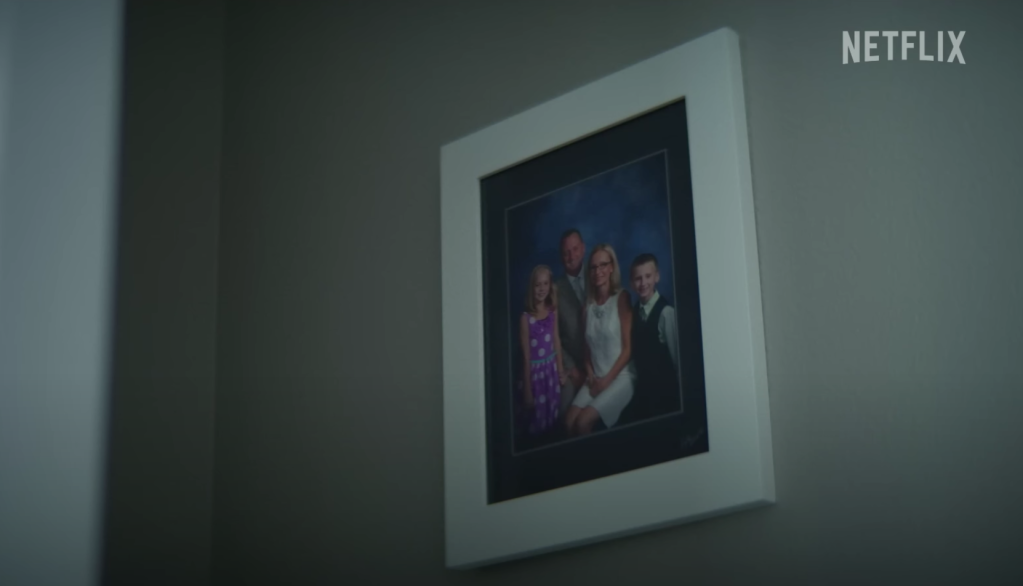The Netflix documentary ‘Take Care of Maya’ was directed by Henry Roosevelt.
It goes without saying that when you are in need of medical attention, you shouldn’t have to be afraid to take yourself — or your loved ones — to the hospital. That said, this documentary is an excellent example of how broken some healthcare systems (and Florida’s child welfare system) can be. This is the kind of documentary that is so powerful and infuriating that it makes you want to write lengthy rants online, so as to complain about how utterly despicable some of the things the system apparently did to the family at the heart of this heart-rending documentary were.
Henry Roosevelt’s documentary follows the arduous and shattering journey that one family — the Kowalskis — embarked on to treat the daughter of the family, Maya, for chronic CRPS (complex regional pain syndrome), which, from what I understand, is a nervous system-related condition wherein the person inflicted by it experiences prolonged debilitating pain (including but not limited to lesions to extremities, burning sensation, and extreme sensitivity to touch). When the family — led by parents Jack and Beata — sought to treat this condition, an American doctor and expert on the matter advised them to seek treatment outside of the United States, and so they took their daughter to Mexico to undergo a medically-induced coma using ketamine. And it worked.
Well, until it didn’t. About a year later, Maya experienced an intense setback, and, naturally, her father rushed her to the emergency room. That ended up being a decision that he would regret, as medical professionals had misgivings about Maya’s condition, and they were alarmed by her prior medication, which Beata insisted that Maya must be given. This all kickstarted a nightmare, as concerned staff alerted child protective services. Beata was soon wrongfully accused of child abuse as a result of Munchausen by proxy. Maya was kept inside the hospital and barred from seeing her family. The documentary chronicles this experience and the family’s attempts to fight back against a broken system that broke their family.
Throughout the documentary, we hear from Jack, Maya, and her brother Kyle. We hear from various medical professionals, a journalist, and attorneys, as well as other people wrongfully accused. Even though the documentary tries its hardest to keep things linear so as to tell the story in the most straightforward and understandable way, it is clear from minute one that something bad happened to the matriarch of the family. Even so, it hit me like a ton of bricks once it was revealed. It is so unspeakably devastating. I’m not sure anyone could watch this documentary without shedding tears.
Although the documentary may not be particularly novel in how it tells the story — linearly, with talking heads, and archival footage of depositions, medical exams, and whatnot — I was still so impressed by how many recordings the filmmakers had gotten ahold of to properly tell this story (apparently thanks to Beata Kowalski having caught on that she ought to document everything at an early stage). The filmmakers manage to communicate the nightmare in a way that gets right under your skin. One of these ways is by showing you text messages between medical professionals discussing their patient, Maya, and the family’s matriarch in ways that shocked and infuriated me, but also by letting us hear how coldly a certain judge denied the family what they needed. It’s such a tough and draining watch, but it is also such an important story to tell.
For as affecting as the documentary is — and, again, it broke my heart to see this family villainized and crushed into a thousand pieces by what in this documentary appeared, among other things, to be systematic inadequacies and ignorance — it is also a shame that the documentary ends on a sad and sour note about how yet another system is being manipulated so as to obstruct the process of giving the family a much-needed victory and opportunity to try to move on (not even allowing them to speak in court…). As such, it does feel somewhat incomplete. Its limited perspective is another reason why that is. While I think what Roosevelt has here is an undeniably affecting true story about wronged individuals, I think it would be true to say that we don’t get underneath the surface of the system itself enough. It may not have been the aim of the documentary, but there might be some room for improvement when it comes to being even more informative about the system surrounding the narrative.
Towards the very end of the documentary, the documentary takes another sledgehammer to your soul by showing how the Kowalski children react to the system’s constant attempts to postpone court dates and obstruct the process — seeing and hearing them hide amongst themselves and cry after all of this is just heartwrenching. Hopefully, this family — and every other family that has been put through the wringer and wrongfully accused by this broken system — gets their day in court, a ‘victory’ of some sort, and the closure they deserve. On September 11th, 2023, the documentary assures us that the Kowalskis will have their day in court to pursue punitive damages — 2,530 days after Maya left the hospital. Let’s hope it goes well. Let’s hope for justice.
8 out of 10
– Review Written by Jeffrey Rex Bertelsen.


One thought on “Take Care of Maya (2023 – Documentary) | REVIEW”